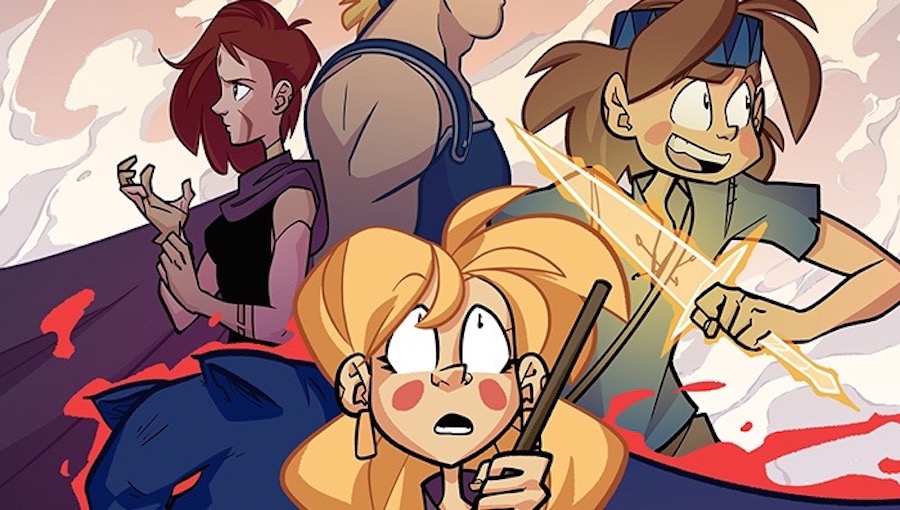Yowza village is a place governed by patriarchal principles, so much so that when a daughter is born to the village guardian, Tane, the village doctor and nurse conspire to switch out the guardian’s natural-born daughter with the only other baby born on the same day – the shopkeeper’s son.
From the opening pages of the prequel installment (Issue #0) Ed Cho, Lee Cherolis, and Dann Tincher establish the conflict between patriarchal and matriarchal principles that will undergird the remainder of the series. In the first six episodes (Issues #0 through #5), this conflict comes to bear on the village in troubling ways. Subria, the true-born daughter of Tane, works in her father’s Item Shop rather than developing what we quickly learn is her natural potential for guardianship. Even without access to the magical orbs that contain each guardian’s spirit animal (along with the demons they’ve fought), Subria not only attracts a spirit animal of her own, but appears to immediately fall into a natural and intimate link with a panther-like spirit cat. Soma, a mysterious woman from another village who brings her own orb and spirit animal to Yowza village, encourages Subria to further develop her magic, while chaos descends on the village. The first six episodes develop some interesting characters, highlight current tensions in the village, and foreshadow interesting, exciting action.
Reading Little Guardians feels a little like playing an RPG; the style promotes this feeling, as does the town-wide zucchini festival that opens the present-day storyline, the suspicious character who appears from out of town and brings conflict with her (Soma), and even the town shop, which is only called “Item Shop.” Additionally, the text seems to operate in two modes: narrative mode and action mode. In narrative mode, the text takes on a cinematic-like scope of vision, which sometimes moves ahead of the text, lending the narrative a voice-over-like quality. In action mode, words are absent save for sound effects, which makes each battle scene feel like a montage. While I am genuinely excited for the next episodes of Little Guardians, I remain slightly hesitant about one detail in the text. Cho, Cherolis, and Tincher are clearly building up to a critique of patriarchal structures that relegate women to the sidelines. This forthcoming critique is one highlight of reading for this reviewer; however, even in the latest of the first five episodes, male characters are given the lion’s share of narrative time and space on the page in a manner that seems to lag behind the story’s shift towards a more balanced world. I sincerely hope that this division of time and space will catch up with the text’s critique, as this text has tons of potential.

